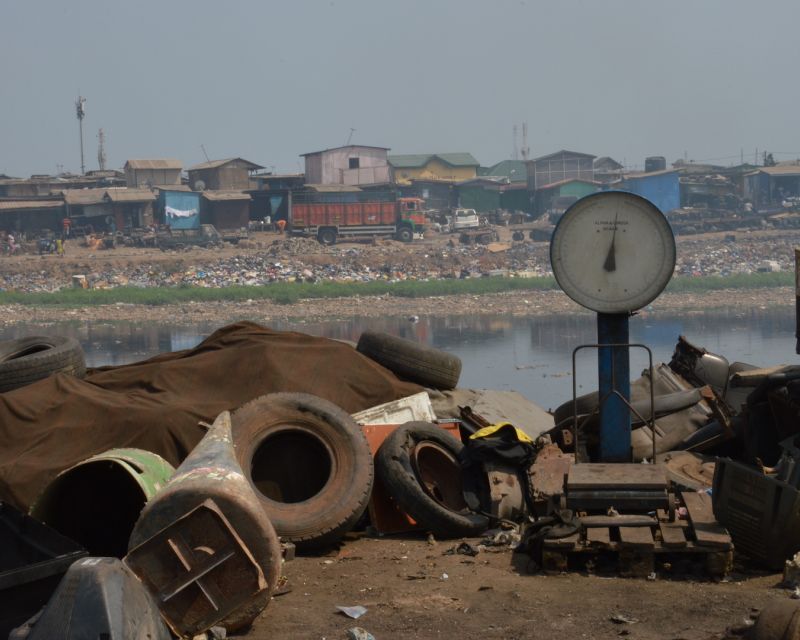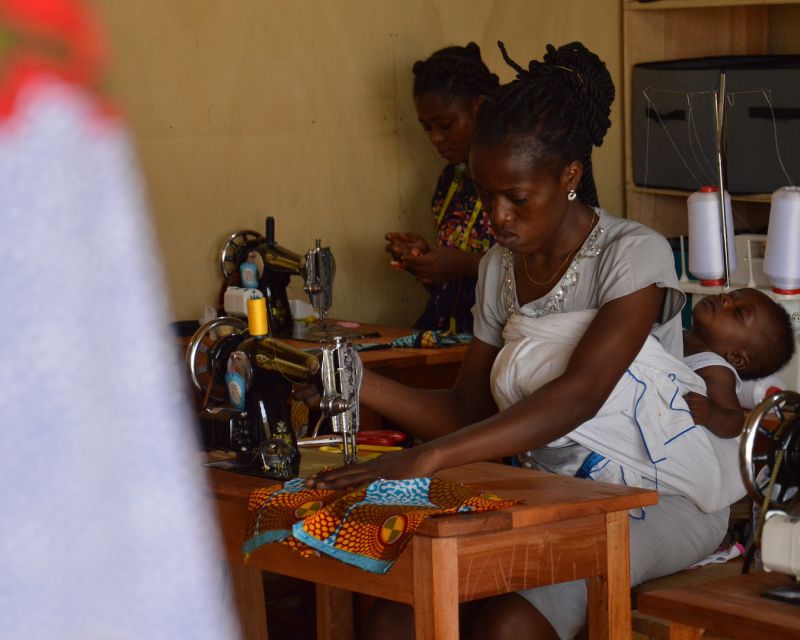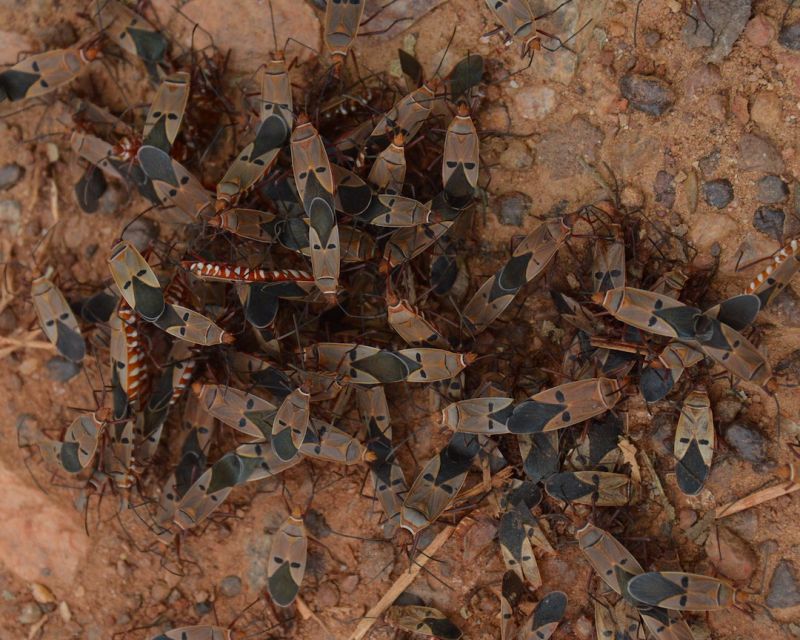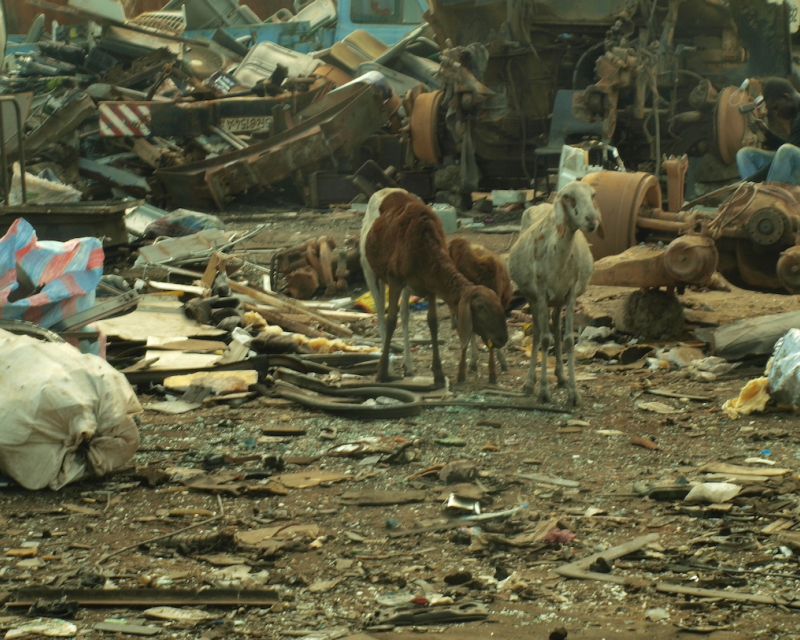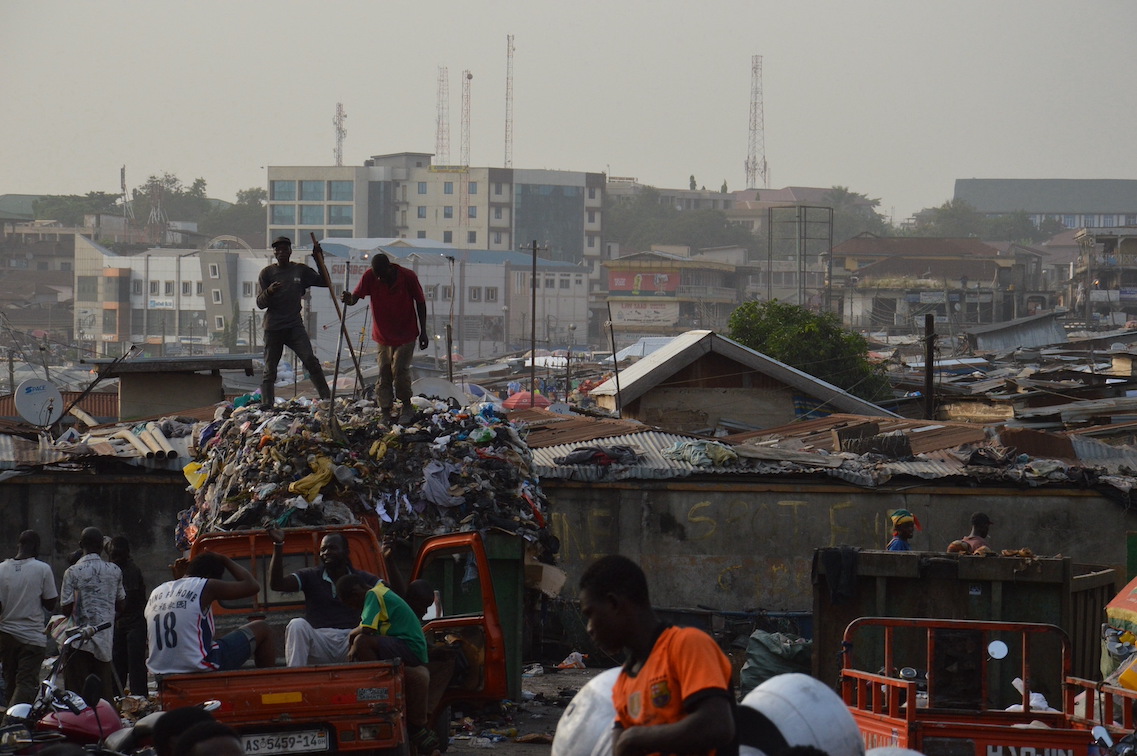 The West-African country of Ghana, along with Nigeria, is one of two countries in the region with major inflow of imported electronic waste (e-waste). According to estimates, in 2009 up to 9 kg of e-waste per capita was imported to Ghana, piling up in total to 215,000 tons.
The West-African country of Ghana, along with Nigeria, is one of two countries in the region with major inflow of imported electronic waste (e-waste). According to estimates, in 2009 up to 9 kg of e-waste per capita was imported to Ghana, piling up in total to 215,000 tons.
The Agbogbloshie scrapyard consisting of e-waste and car wrecks is located directly within the urban area of the capital city of Accra. The Agbogbloshie scrapyard became known all over the globe as a toxic hot spot due to vast contamination of the site with heavy metals and persistent organic pollutants (POPs), such as dioxins or brominated flame retardants. Additionally, there are many more waste management related problems in Ghana causing serious toxic pollution. Many local hospitals use poorly equipped medical waste incinerators, usually damaging the surrounding environment.
Thanks to the support of the Swedish government and through the cross-border partnership with the IPEN network, Arnika cooperates with Ghanaian scientists on sampling of several hot spots in order to find out levels of potential contamination of the food chain by POPs.
In December 2018, together with local experts on toxic substances we set up a team to monitor and sample three sites, including the infamous Agbogbloshie, the nearby medical waste incinerator in Korle Bu, and a similar facility in Kumasi.





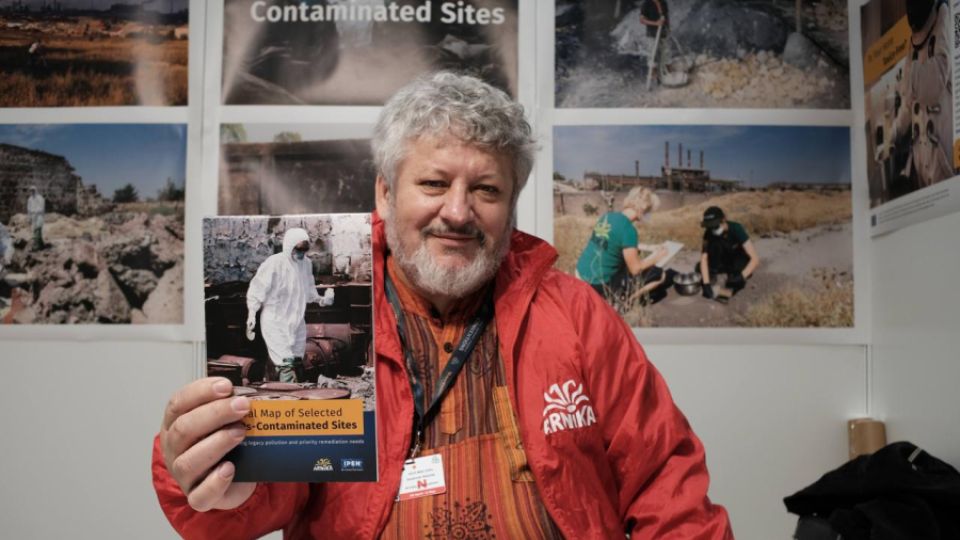
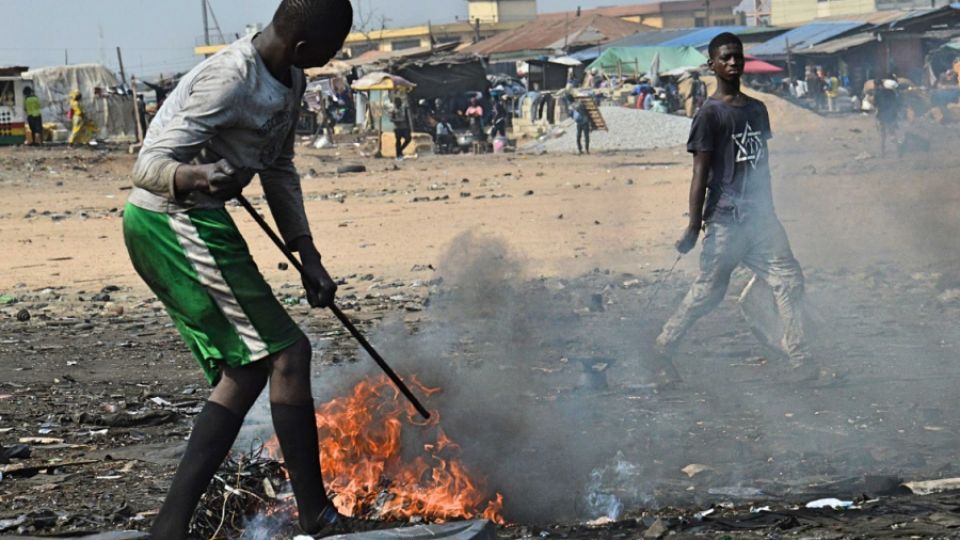

 The West-African country of Ghana, along with Nigeria, is one of two countries in the region with major inflow of imported electronic waste (e-waste). According to estimates, in 2009 up to 9 kg of e-waste per capita was imported to Ghana, piling up in total to 215,000 tons.
The West-African country of Ghana, along with Nigeria, is one of two countries in the region with major inflow of imported electronic waste (e-waste). According to estimates, in 2009 up to 9 kg of e-waste per capita was imported to Ghana, piling up in total to 215,000 tons. 